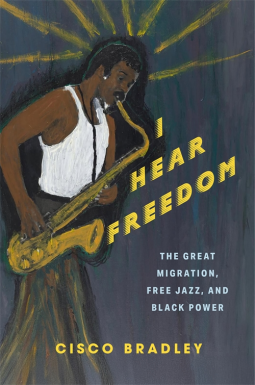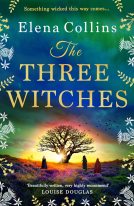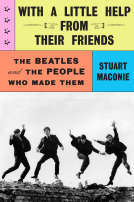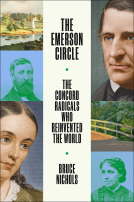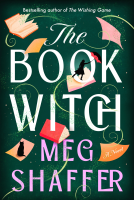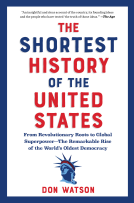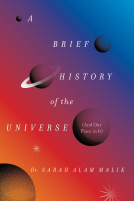I Hear Freedom
The Great Migration, Free Jazz, and Black Power
by Cisco Bradley
You must sign in to see if this title is available for request. Sign In or Register Now
Send NetGalley books directly to your Kindle or Kindle app
1
To read on a Kindle or Kindle app, please add kindle@netgalley.com as an approved email address to receive files in your Amazon account. Click here for step-by-step instructions.
2
Also find your Kindle email address within your Amazon account, and enter it here.
Pub Date Mar 17 2026 | Archive Date Jun 24 2026
Talking about this book? Use #IHearFreedom #NetGalley. More hashtag tips!
Description
Based on interviews with dozens of musicians, I Hear Freedom tells the story of free jazz and its connection to the broader Black experience. Cisco Bradley demonstrates that although this part of the free jazz movement arose in the Midwest, it is deeply rooted in the musical traditions and aesthetics that the Great Migration brought from the South. As postwar urban renewal projects fractured Black communities, musicians drew on this heritage to create new forms of expression. Figures such as Albert Ayler, Donald Ayler, Charles Tyler, Frank Wright, Bobby Few, Charles Moore, and Faruq Z. Bey developed distinct artistic visions, often influenced by their involvement in Black liberation movements. I Hear Freedom chronicles the Cleveland and Detroit free jazz scenes, and it follows musicians to New York, Los Angeles, Paris, and beyond. A revelatory oral history, this book shows that free jazz is a uniquely Black style shaped by mobility, community, and the struggle for freedom.
Advance Praise
"Through meticulous oral histories, archival research, and theoretical insight, Bradley expands the scope and tenor of jazz historiography by revealing how Black familial lineages carried musical values of mobility, collectivity, and experimentation into the heart of northern urban modernity and made jazz a blueprint for the Black radical tradition and its dreams of liberation."
--Benjamin Barson, author of Brassroots Democracy: Maroon Ecologies and the Jazz Commons
"In I Hear Freedom, Cisco Bradley guides readers through an alternative, ethnographic model of jazz—and thus American music—history. Other jazz scholars posit linear genealogies, with musicians/composers evolving out of past styles and artists; Bradley instead situates black improvising musicians/composers within their familial, community, and professional networks. With extensive and unprecedented archival research, Bradley reveals how migratory movement drove free jazz’s experimentalist praxis, and how encounters made along the journey culminated in art."
--Kwami Coleman, author of Change: The New Thing and Modern Jazz
Available Editions
| EDITION | Other Format |
| ISBN | 9780231221573 |
| PRICE | $32.00 (USD) |
| PAGES | 480 |
Available on NetGalley
Average rating from 3 members
Readers who liked this book also liked:
Marie Bostwick
Historical Fiction, Literary Fiction, Women's Fiction
Stuart Maconie
Arts & Photography, Biographies & Memoirs, History
Don Watson
History, Nonfiction (Adult), Politics & Current Affairs
Dr. Sarah Alam Malik
History, Nonfiction (Adult), Science
